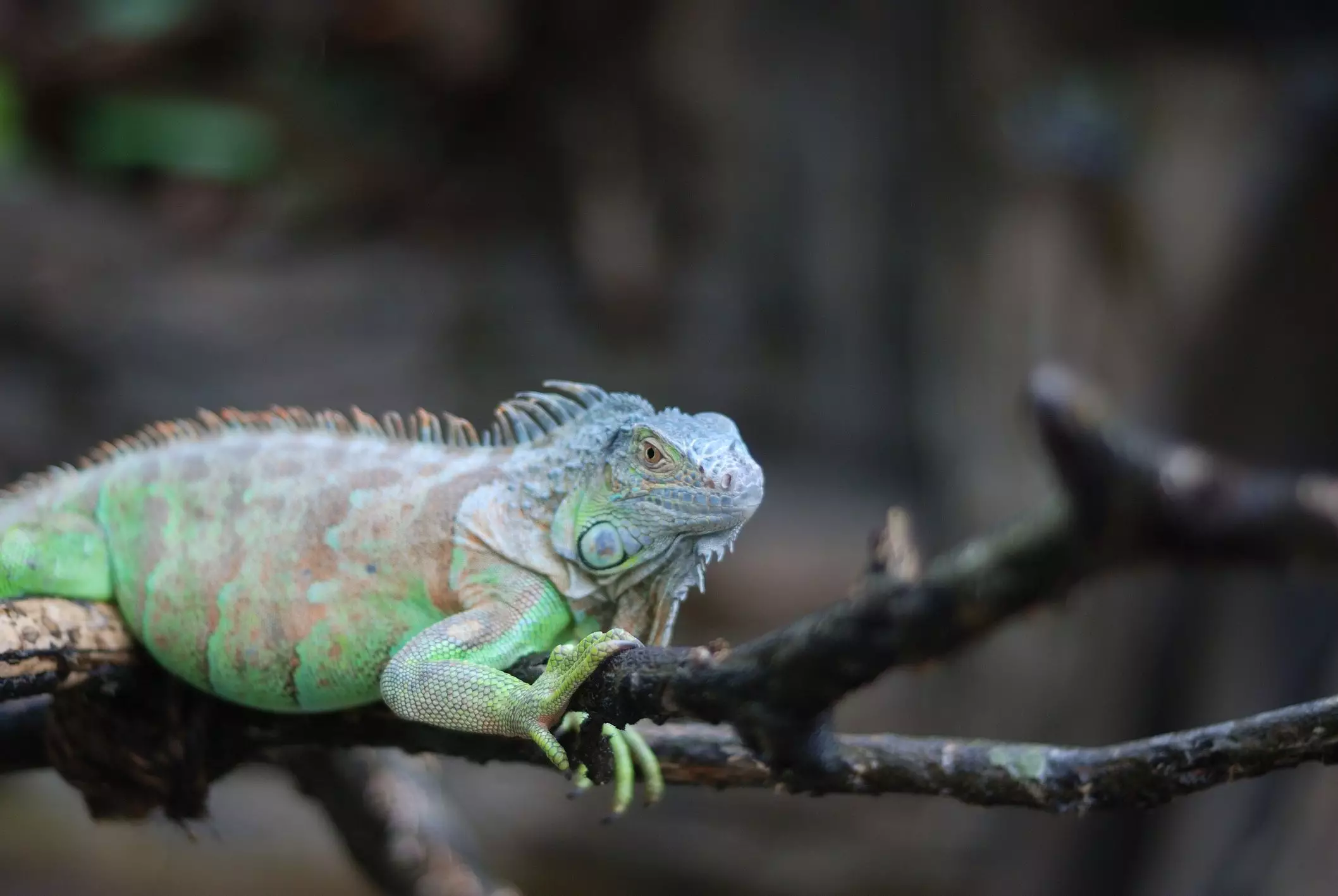Iguanas have emerged as popular exotic pets within households across the globe. This trend is primarily attributed to their unique appearance and fascinating behaviors. However, potential owners must comprehend the significant commitment and care necessary to ensure that these creatures thrive in captivity. It’s essential to examine the requirements, characteristics, and responsibilities that come with adopting an iguana, transforming the initial allure into a sustainable and fulfilling pet ownership experience.
The Basics: Understanding Iguanas
Iguanas, primarily the Green Iguana (Iguana iguana), trace their origins to the lush environments of Central and South America. Owning an iguana means embracing a large reptile, as mature specimens can reach lengths of up to seven feet and weigh approximately 20 pounds. An iguana can be a long-term commitment, with life spans ranging from 10 to 20 years, demanding careful consideration before embarking on the journey of ownership.
The reality of iguana ownership is multifaceted. Unlike traditional pets such as dogs or cats, iguanas retain wild instincts. These reptiles are not domesticated creatures and can display stress and aggression if not promptly handled. Socialization from a young age is crucial. Routine handling can foster trust, although it requires patience, as iguanas may initially resist human interaction.
Understanding the spatial needs of iguanas is crucial for their well-being. A standard aquarium will quickly become inadequate as the iguana grows. Responsible owners often create custom habitats that provide ample room for climbing and exploration. A well-designed enclosure should ideally measure about 12 feet in length, 6 feet in width, and 8 feet in height. Many aquarists opt to repurpose large closets or even rooms to accommodate their iguanas’ natural behaviors, reflecting their instinctive arboreal nature.
The environment inside the enclosure must be carefully managed to mimic tropical climates. Maintaining the right temperature is essential; basking areas should reach around 95 degrees Fahrenheit, while nighttime temperatures must not dip below 75 degrees Fahrenheit. Temperature fluctuations can lead to health issues, emphasizing the need for heat lamps and regular monitoring.
Humidity also plays a pivotal role in an iguana’s habitat. A minimum humidity level of 70% is necessary, achievable through misters or shallow water pools within the enclosure. Regular misting can help prevent skin issues and keep the iguana hydrated.
Diet significantly impacts the health of an iguana. These reptiles are strict herbivores, and their diets must exclude animal protein to avoid serious health problems such as kidney failure. A balanced diet should consist of high-quality commercial pellets, dark leafy greens, certain fruits, and essential calcium supplements to promote proper bone health.
It’s beneficial to chop or shred food into manageable pieces since iguanas don’t chew their food, swallowing it whole. An additional layer of responsibility lies in ensuring that fresh water is always accessible and monitoring food intake to maintain a healthy weight. Owners should also promptly remove uneaten food to prevent spoilage and contamination.
With the beauty of iguanas comes the burden of health considerations that every owner must acknowledge. Common health issues in iguanas include metabolic bone disease, often stemming from insufficient nutrition, and respiratory infections caused by improper environmental conditions. Thus, routine check-ups with a veterinarian familiar with reptiles are paramount for maintaining an iguana’s health status.
Moreover, iguanas are known carriers of salmonella, prompting best hygiene practices among owners, especially when children or immunocompromised individuals reside in the home. Washing hands thoroughly after handling the iguana or cleaning its habitat can mitigate potential health risks.
Iguanas are captivating animals that require a dedicated and knowledgeable owner to thrive. The blend of their vast habitat space, strict dietary needs, and health considerations must not be taken lightly. A prospective iguana owner should earnestly consider whether they can provide the necessary environment and care for these magnificent reptiles.
Through informed decision-making and a commitment to their care, iguanas can live fulfilling lives as cherished companions. Understanding these remarkable creatures will not only enhance the owner’s experience but also ensure that the iguana can flourish in captivity, highlighting the importance of being an educated and responsible pet owner.


Leave a Reply